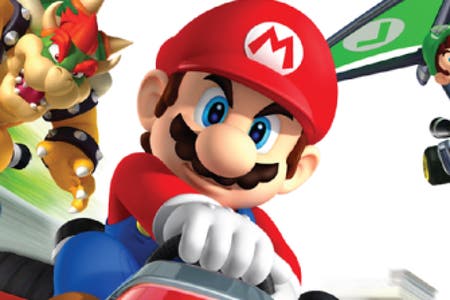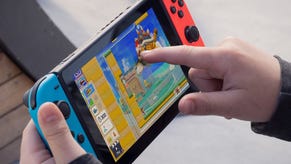Iwata: Nintendo "proved" handheld naysayers were wrong
3DS fastest-selling console ever in Japan.
The uplift in sales of the 3DS have proved those who claimed handhelds were doomed wrong, Nintendo boss Satoru Iwata has said.
Many expected the Nintendo 3DS to struggle as a result of the emergence of smartphones as gaming devices - particularly with the enormous popularity of iOS and Android gaming.
Iwata's famous 2011 GDC speech was taken by many to be an attack on app gaming - and caused game industry members to question the Japanese company's strategy.
While the 3DS did struggle at first - particularly in the US and Europe, it has since rallied and is now selling well. This, Iwata said, answered the critics.
"Last summer, when the sales pace of the Nintendo 3DS was slow, there were extreme remarks saying, 'With the penetration of smartphones, will there still be a market for handheld hardware?,' which was almost equal to 'Handheld hardware is not necessary anymore,'" he said in an investor briefing overnight.
"I believe we proved that such opinions are incorrect."
Sales of the 3DS picked up over Christmas, fuelled by the high-profile price cut, the launch of Mario Kart 7 and Super Mario 3D Land, and in Japan Monster Hunter 3G.
In Japan, at the end of last year total unit sales of the Nintendo 3DS reached four million faster than the Nintendo DS or the Wii. Iwata confirmed this morning that the 3DS did not lose its momentum even after the new year, and two weeks ago overtook the Game Boy Advance to record the fastest sales pace in Japan.
Iwata qualified the 3DS' success by saying Nintendo was unable to reach the sales goal it set in October 2011, which is one of the reasons it revised its financial forecasts - the company expects to make a huge loss for the 2012 financial year.
"Because the start of the year-end sales season was slower both in the US and in Europe in comparison to the last few years, and because we could not cover the lack of sales even after the sales gained momentum, the total sales did not reach our forecast," Iwata explained.
"Considering that, in the end, the momentum at the end of the year was almost as we had expected, we have to look back on the fact that we could not boost sales a little earlier. "








.png?width=291&height=164&fit=crop&quality=80&format=jpg&auto=webp)
